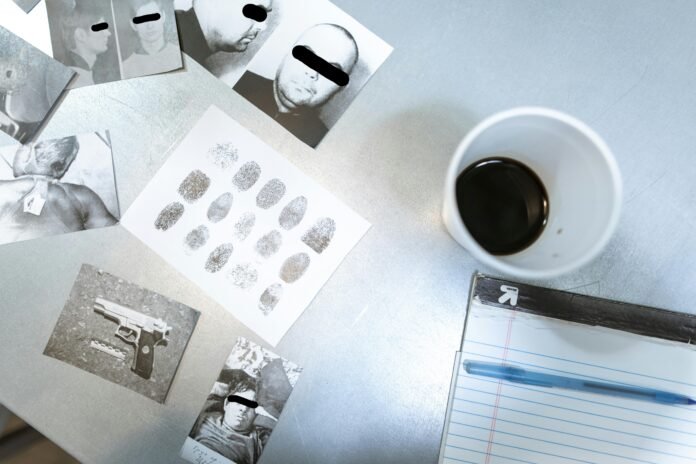Forensic investigators play a pivotal role in uncovering the truth behind events, crimes, or disputes. These experts use a blend of science, technology, and investigative skills to analyze evidence, provide insights, and often help deliver justice. This article delves into the cutting-edge tools, technologies, and scientific methods that these specialists employ to solve mysteries and bring clarity to complex cases.
The Role of Forensic Science in Investigations
Forensic science bridges the gap between science and law, enabling investigators to gather, analyze, and interpret evidence that stands up in court. Its importance lies in its objective nature—evidence analyzed scientifically is free from bias, making it a crucial component of criminal and civil cases alike.
From crime scenes to digital landscapes, forensic techniques have expanded significantly over the years, offering diverse applications that include:
- Criminal investigations (e.g., homicide, theft, assault)
- Accident reconstructions
- Fraud detection
- Digital crime analysis
- Insurance claims investigations
Key Tools and Techniques Used by Forensic Experts
Forensic investigation experts rely on advanced tools and scientific methods to gather and analyze evidence. Below are some key areas where these techniques shine.
Crime Scene Analysis Tools
- 3D Laser Scanners: These devices create detailed 3D models of crime scenes, enabling investigators to preserve spatial relationships and visualize scenes long after they’ve been processed.
- Forensic Light Sources (FLS): Investigators use FLS to identify biological fluids, fingerprints, and trace evidence. These lights illuminate details invisible to the naked eye by using UV, infrared, or alternate wavelengths.
- Evidence Collection Kits: Standard kits contain swabs, gloves, tamper-proof bags, and labeling tools, ensuring evidence integrity from collection to court presentation.
Laboratory Techniques
- DNA Analysis: Among the most powerful tools, DNA testing matches biological samples like hair, saliva, or blood to individuals with near-perfect accuracy.
- Toxicology Screening: Forensic toxicologists analyze bodily fluids and tissues to detect drugs, alcohol, or poisons. This technique is crucial in autopsies and DUI cases.
- Ballistics Analysis: Specialists in this field examine bullets, cartridge cases, and gunshot residues to link firearms to crimes. Modern systems like the Integrated Ballistics Identification System (IBIS) expedite this process by comparing ballistic markings in a national database.
Digital Forensic Technologies
In the era of digital transformation, forensic investigation experts often deal with cybercrime and electronic evidence. Key technologies include:
- Forensic Data Recovery Tools: Software like EnCase and FTK help recover deleted or hidden files from computers, phones, and storage devices. This is vital in cases involving fraud, theft, or digital misconduct.
- Network Forensics: This technique analyzes data packets and server logs to trace cyberattacks or unauthorized access.
- AI-Powered Analysis: Machine learning algorithms are increasingly being used to detect patterns in large datasets, assisting in fraud detection and predictive analysis.
Fire and Explosion Investigation Methods
- Fire Dynamics Simulations: Investigators use computational tools to recreate fire incidents, helping determine the point of origin and spread patterns.
- Chemical Analysis: Techniques like gas chromatography identify accelerants or other chemicals at fire scenes.
Questioned Document Examination
Forensic investigation experts also specialize in authenticating documents and identifying forgeries. This involves:
- Ink and Paper Analysis: Chemical tests determine the age and composition of inks and papers.
- Handwriting Analysis: Specialists compare handwriting samples to detect inconsistencies or forgeries.
Emerging Technologies in Forensic Investigation
The field of forensic investigation continues to evolve with technological advancements. Some groundbreaking innovations include:
- Virtual Reality (VR): VR is being used to recreate crime scenes for court presentations, allowing jurors to “walk through” events as they occurred.
- Portable DNA Sequencers: Compact devices now allow DNA profiling to be performed on-site, significantly reducing turnaround times.
- Biometric Analysis: From facial recognition to voice pattern analysis, biometric technologies are improving the speed and accuracy of suspect identification.
- Drone Technology: Drones equipped with high-resolution cameras and sensors are aiding in documenting large-scale crime scenes and inaccessible locations.
Challenges Faced by Forensic Investigators
Despite the advancements, forensic investigation experts face several challenges:
- Backlogs in Analysis: Overburdened laboratories often delay the processing of evidence, affecting case timelines.
- Maintaining Evidence Integrity: Improper handling can lead to contamination, rendering evidence inadmissible.
- Keeping Up with Technology: As criminals adopt sophisticated methods, investigators must continually update their skills and tools to stay ahead.
- Legal Scrutiny: Forensic evidence must meet stringent legal standards to be considered reliable in court. Errors or unvalidated techniques can lead to challenges during trials.
How Forensic Investigation Benefits Society
Forensic investigation experts not only solve crimes but also contribute to justice, public safety, and scientific discovery. Their work ensures that:
- Wrongdoers are held accountable.
- Innocent individuals are exonerated.
- Lessons are learned to prevent future incidents.
Choosing the Right Forensic Partner
Organizations like Approved Group International (AGI) have set benchmarks in this domain by combining scientific rigor with real-world application. AGI’s team of forensic investigators employs state-of-the-art techniques—from advanced DNA sequencing to 3D crime scene modeling—ensuring every case is handled with utmost accuracy. Reach out to AGI to turn complexity into clarity with confidence.


